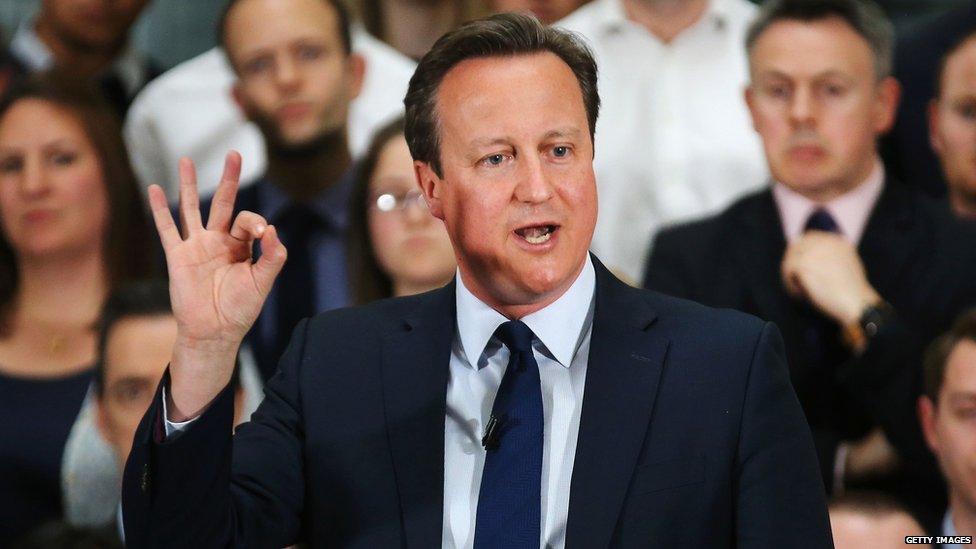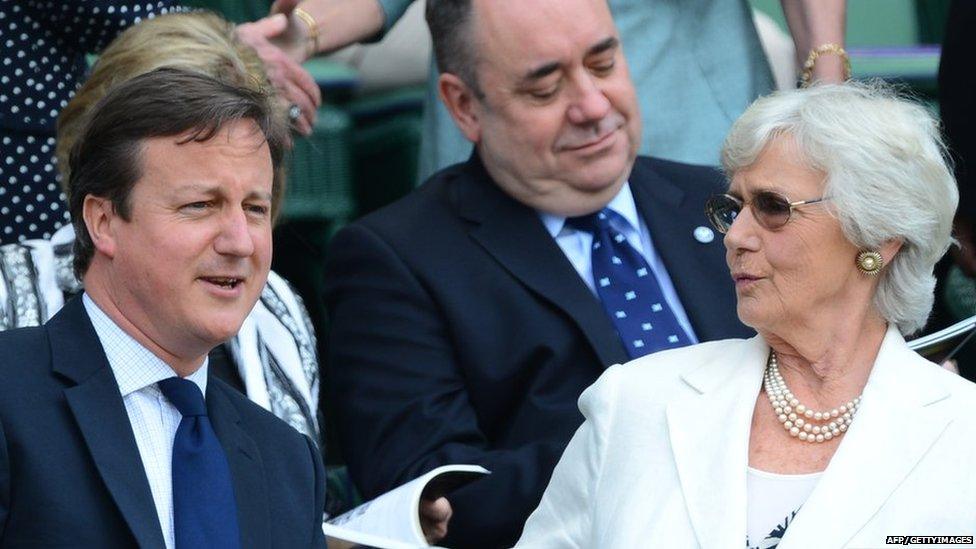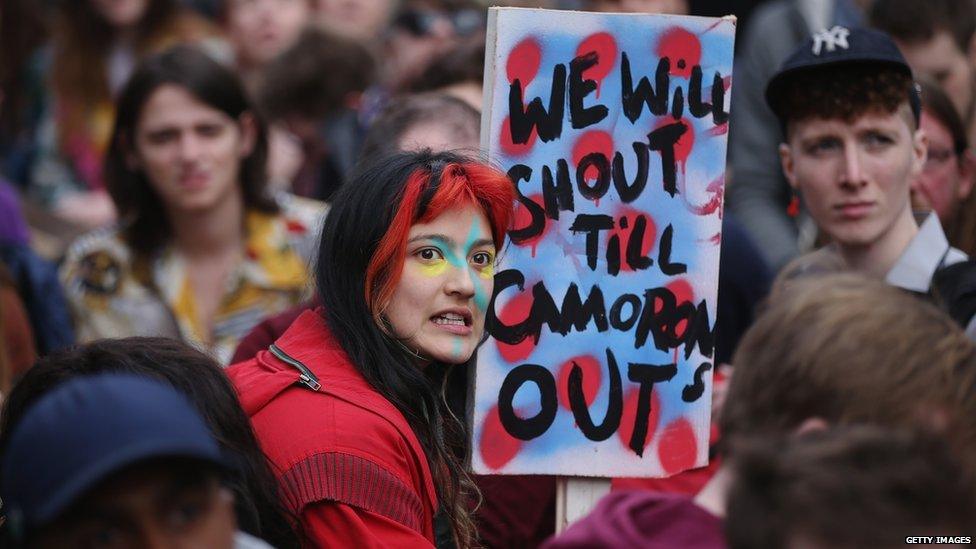Panama papers - the fallout from the offshore tax story explained in numbers
- Published

"It's not been a great week."
If ever there was an understatement, that would be it from David Cameron following one of the biggest data leaks in history.
The Panama Papers revealed how the rich and powerful use tax havens to hide their wealth and dodge paying tax and the prime minister's been dragged into it.
After a week of revelations, here are the numbers you need to know.
11.5 million files

German newspaper Süeddeutsche Zeitung was contacted by an anonymous source, who leaked the data
This is the number of documents that were leaked to German newspaper Süeddeutsche Zeitung by an anonymous source.
Those files were originally held by the world's fourth biggest offshore law firm Mossack Fonseca - which is based in Panama in central America.
The documents have also been shared with a global network of investigative journalists called the ICIJ, which passed them onto the likes of the Guardian and the BBC.
40 years
The ICIJ says most of the Panama Papers focus on nearly four decades of day-to-day business at Mossack Fonseca.
Most of the information is contained in emails, but images of contracts and passports were also released.
The company says it hasn't done anything wrong and hasn't ever been accused or charged with criminal wrongdoing.
12 big names

David Cameron with Iceland's Prime Minister Sigmundur David Gunnlaugsson - we don't think they were talking about offshore accounts
A dozen current or former world leaders are mentioned in the leaked papers, along with more than 60 other politicians, relatives and associates who are implicated.
David Cameron's not so great week began with news that his dad Ian helped set up an offshore fund called Blairmore Holdings.
The PM had shares in this fund, but he sold them before he became leader of the country and paid tax on the profits.
Other politicians linked to the Panama Papers include the prime minister of Iceland, who has since resigned, the cousin of Syrian President Bashar al-Assad, associates of Russian president Vladimir Putin and relatives of the Chinese president Xi Jinping.
It's not just politicians though as the president of Fifa and footballer Lionel Messi also feature in the leaks.
£200,000 from David Cameron's mum

In a first for a serving prime minister, David Cameron published his tax returns over the weekend after being criticised over his links to Blairmore Holdings.
His 2009-2015 tax and earnings show that his mum Mary gave him £200,000 because if he'd inherited that money after she died - it would have been taxed.
After pressure to do the same Chancellor George Osborne has just published his tax details, external.
And Labour leader Jeremy Corbyn apparently struggled to find his tax return, but he's now released his too.
This is a tweet from Laura Keunnsberg which has Corbyn's tax return pictured., external
Lib Dem leaders are also considering it but it's a "big no" from the man at the top of UKIP, Nigel Farage.
2,600 megabytes
Panama Papers is one of the biggest data leaks in history, and makes other scandals in the past seem tiny by comparison.

You may remember the WikiLeaks scandal - when nearly a quarter of a million secret US documents were revealed in 2010.
At 1.7 gigabytes, that amount of data is much smaller than the 2,600 gigabytes in the Panama Papers.
Millions in Mayfair mansions
In Westminster, home to Mayfair - the most expensive square in the board game Monopoly - almost one in 10 properties is owned by an anonymous offshore company and can't be directly associated with a specific owner, says Transparency International.
This isn't illegal, but in some parts of the country, like London, using offshore companies to buy properties as investments - rather than to actually live in them - has meant house prices have gone up.
Hundreds of people protesting

Tensions are still running high after the data release.
Last weekend, #ResignCameron was trending on Twitter and a day later hundreds of people protested outside Downing Street.
A petition calling on the prime minister to resign has also gained thousands of signatures.
12 months
This is how long it's taken to process all the data.
More than 100 media organisations from 76 countries have been going through the information and publishing stories on it.
More details are coming out from the leak all the time, such as offshore links to suspected Nazi-looted art and the famous auctioneers Christie's.
Find us on Instagram at BBCNewsbeat, external and follow us on Snapchat, search for bbc_newsbeat